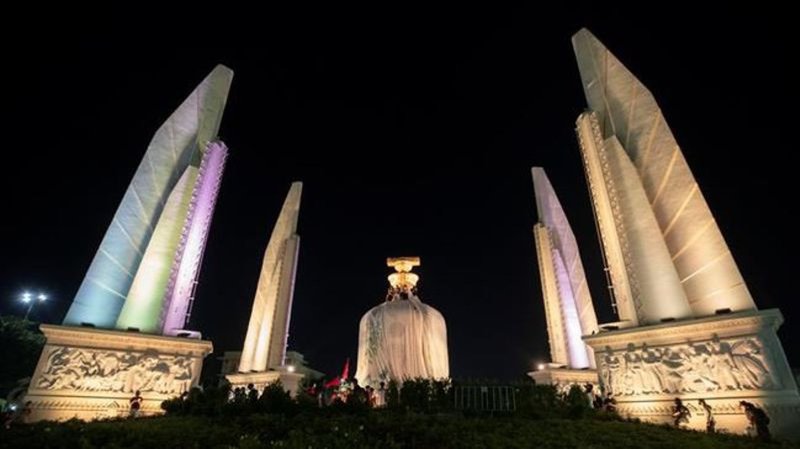
Thai protesters rally again, promoting a diversity of causes
BANGKOK — Pro-democracy protesters in Thailand rallied again on Saturday, promoting a diversity of causes and taking an opportunity to display their rejection of the country’s power structure directly to the monarch.
Some 20 groups called the rally at Bangkok’s Democracy Monument under the name “Mob Fest” as the latest in a series of protests calling for significant reforms in government. Secondary school students, women’s right advocates and LGBTQ activists were among them.
The core demands of the student-led protest movement are that Prime Minister Prayuth Chan-ocha step down, the constitution be amended to make it more democratic, and the monarchy be reformed to be made more accountable.
The movement has put pressure on Prayuth’s government, which after failing to stop it through the use of police force has now scheduled a session of Parliament for Tuesday and Wednesday to debate changes to the constitution.


